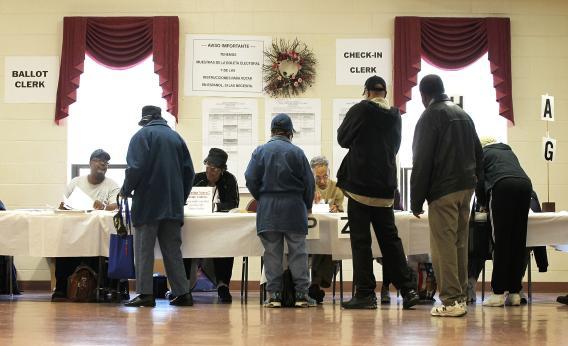Also in Slate: William Saletan on why many Americans’ positions on abortion have remained conservative.
Another year, another Gallup poll on abortion for anti-choicers to misleadingly represent in a bid to deceive the country into believing they’re winning in the court of public opinion. Of course, Gallup shares the blame for this travesty, since it publishes its polling results with a lead about the poll that asks if people identify as pro-choice or pro-life. Inevitably, “pro-life” polls well, much better than it would if it were more accurately phrased as “anti-choice” or “anti-abortion,” because it’s a fuzzy-wuzzy term that deliberately distracts from the legal and sexual freedom issues at the heart of the abortion debate. This year, the poll found that 50 percent of Americans relate to the empty term “pro-life,” and only 41 percent to the term “pro-choice.”
But if you actually bother to read on, you’ll find that Americans are still majority pro-choice, which is why the direct abortion ban in South Dakota and the personhood law in Mississippi went down when put to an actual vote. Scrolling down, you find that only 20 percent of Americans support the anti-choice movement’s goal in banning abortion, with 25 percent of Americans supporting abortion rights in all cases, and 52 percent of Americans wanting abortion legal with some restrictions. (Most people imagine a legal regime that will somehow allow abortion for themselves and their friends, but disallow it for those dirty sluts they hear about so much.) This means that only two out of five people who identify as “pro-life” actually align themselves with the so-called pro-life view, demonstrating neatly how useless that term is and why it needs to be replaced with a more accurate term like “anti-abortion,” or my preferred term “anti-choice,” which encompasses their anti-contraception activism alongside their anti-abortion activism.
Polling Americans on vague beliefs and self-identity doesn’t really tell us much in general beyond highlighting how delusional and/or hypocritical our nation is. The reality is that there’s a huge gulf between what people claim to believe—even when speaking anonymously to a pollster—and what they actually believe, which is easier to measure when looking at behavior or what kind of policy choices they support. Gallup didn’t just measure views on abortion this week, but also took a more general look at Americans’ beliefs about various morally contentious issues, including sexual choices. While some of the answers are in alignment with people’s actual behavior—nearly nine out of 10 Americans support the use of contraception, for instance—in some cases the gulf between what people actually believe and what they tell pollsters is comical. For instance, 38 percent of Americans say that sex between unmarried heterosexuals is wrong, but Guttmacher data demonstrates that 95 percent of Americans actually do the deed at some point. Even in the unlikely event that there’s complete overlap between the “thou shall nots” and the “didn’t dos,” that still means one in three Americans is so invested in an image of themselves as an uptight prig that they will misrepresent themselves to a pollster who they know isn’t attaching their name to the answers.
It’s of course possible that one-third of our nation are swimming in daily guilt about their fornicating ways, but the likelier answer is that most of these people have rationalized their own choices while passing judgment on others. (Abortion providers see this all the time with self-identified pro-life patients, who usually have a reason why their abortion is the moral one.) It’s much easier to imagine that someone else’s choice to do what you did—in this case, have sex outside of marriage—as much sleazier and less justified than when you did it. With these kinds of polls, a significant number of people hear a “when someone else does it” attached to the question, even though it’s not. Which is why putting too much stock in polls that measure abstract “beliefs” are next to useless for measuring much more than people’s preening self-images.
